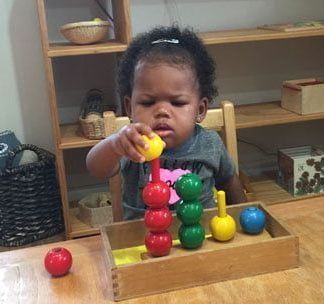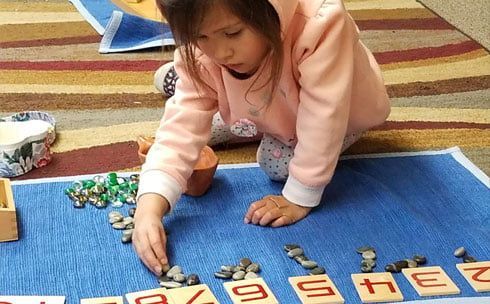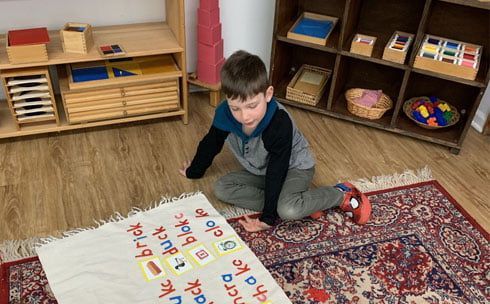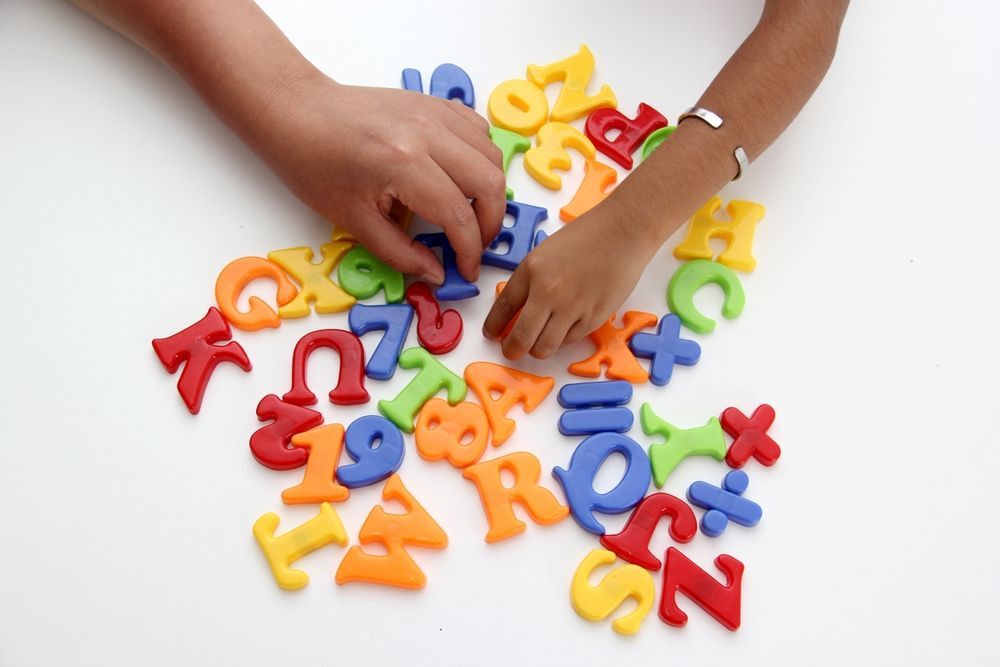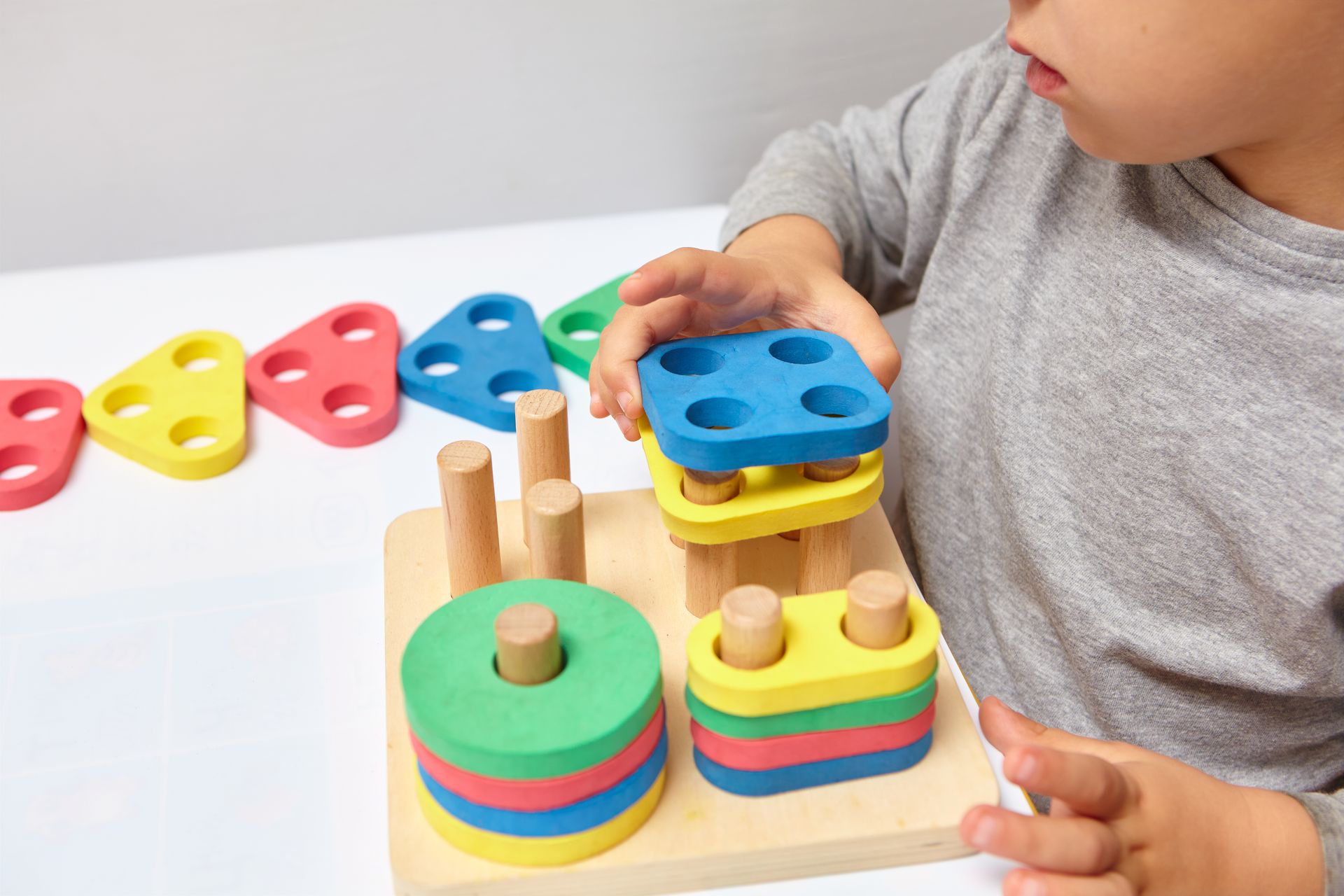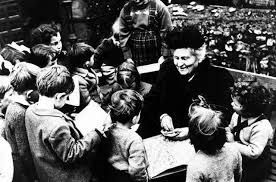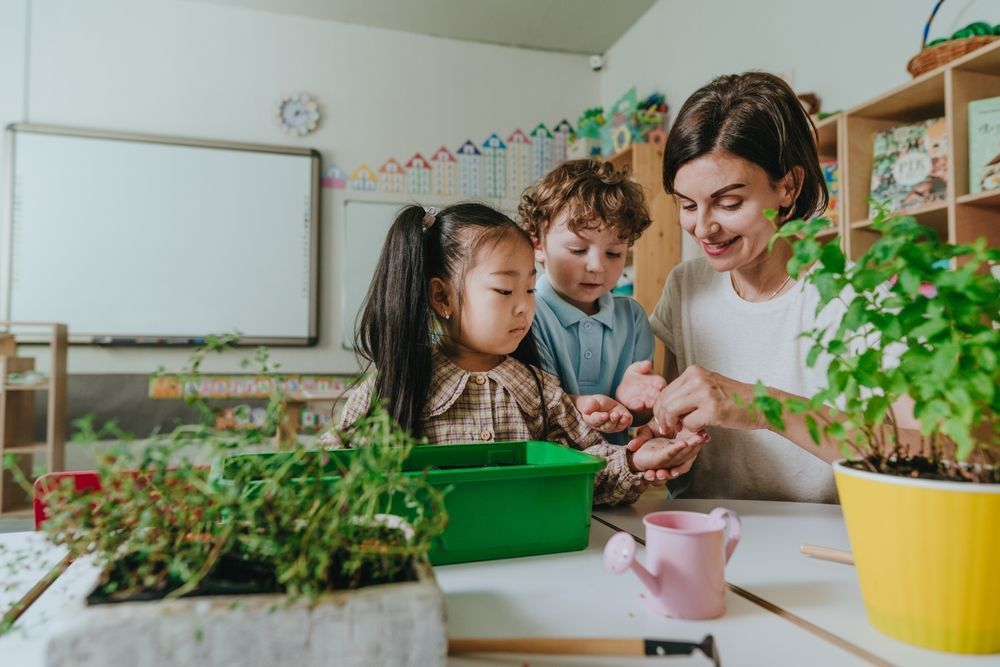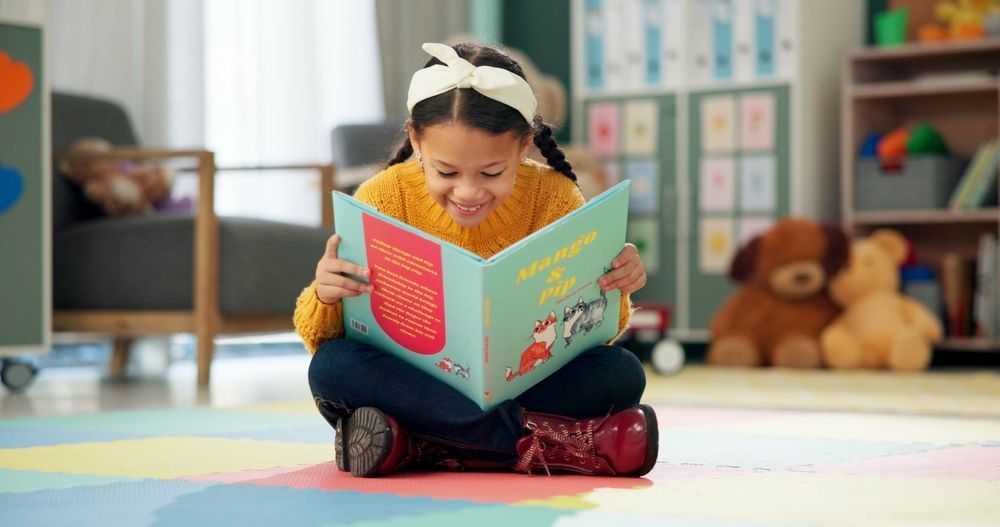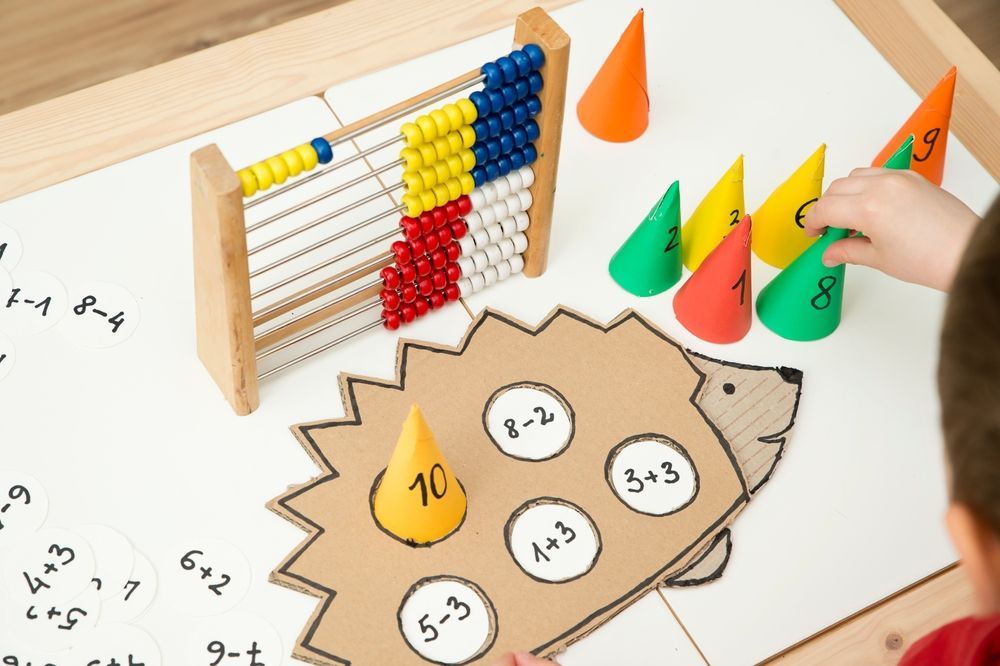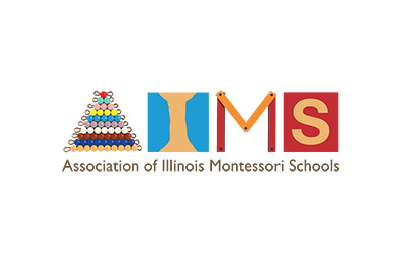How Montessori Teachers Shape Child Development
Share this Article:

What is a Montessori teacher? In a role much different from traditional American education models, the Montessori teacher is tasked with sparking curiosity and nurturing a love of learning.
Most notably, a Montessori teacher is not what many would consider an instructor in that they do not tell a child facts and expect them to repeat them back. Instead, they facilitate learning by providing children with the tools they need to develop questions and find answers on their own. When you learn what a Montessori school offers, you can see the value in the role of a teacher.
What Makes a Montessori Teacher Unique?
The Montessori learning environment and programs create an opportunity for children to learn at their own rate and through experiences. To achieve this and ensure the child obtains the necessary skills, teachers must offer a different set of skills. Several ways that Montessori teachers are unique include:
- They are quiet observers. They support children who direct their own activities in small groups, observing as they do.
- They offer positive discipline. The goal is not to punish or reward but to offer a positive form of discipline that encourages a skill-based approach.
- Teachers work with students in a small group environment rather than a large classroom.
- Teachers are scientists who study their students, learn about the child's interests and needs, and guide them where they need it.
- More so, Montessori educators also bond with their children, and those bonds tend to last for years.
Key Roles of a Montessori Teacher
Another way to see how unique and important teachers are in the Montessori classroom is to consider the specific roles they play. Unlike traditional teachers, there is no formal instruction or lecturing, but these teachers provide support in several other core ways.
Encouraging Independence
Teachers of all types must support children's growth. Instead of providing specific instructions on how to accomplish tasks, the Montessori environment encourages children to spot problems or areas of interest and then find a way to overcome or adapt to them. This type of independence is essential to supporting a child's ongoing need to learn independently.
Cultivating Curiosity
Educators must spur curiosity and encourage students to discover and innovate as they go. To do this, they may ask questions and engage children in conversation. They also provide the tools and resources the child needs to navigate those new ideas. By creating this level of curiosity, even and especially in the younger years of a child's life, it is possible to encourage an ongoing desire to learn. This builds intellectual curiosity and leads to academic achievement.
Promoting Logic and Critical Thinking
Another big part of the work these teachers do is creating the foundation for building practical life skills. By presenting children with information and resources that interest them, it is possible to spur curiosity. From there, a teacher's job is to encourage logical expression of topics or areas of interest from the new content. In addition to this, teachers work to ask questions or provide tools that make children think critically, allowing them to gain critical problem-solving abilities.
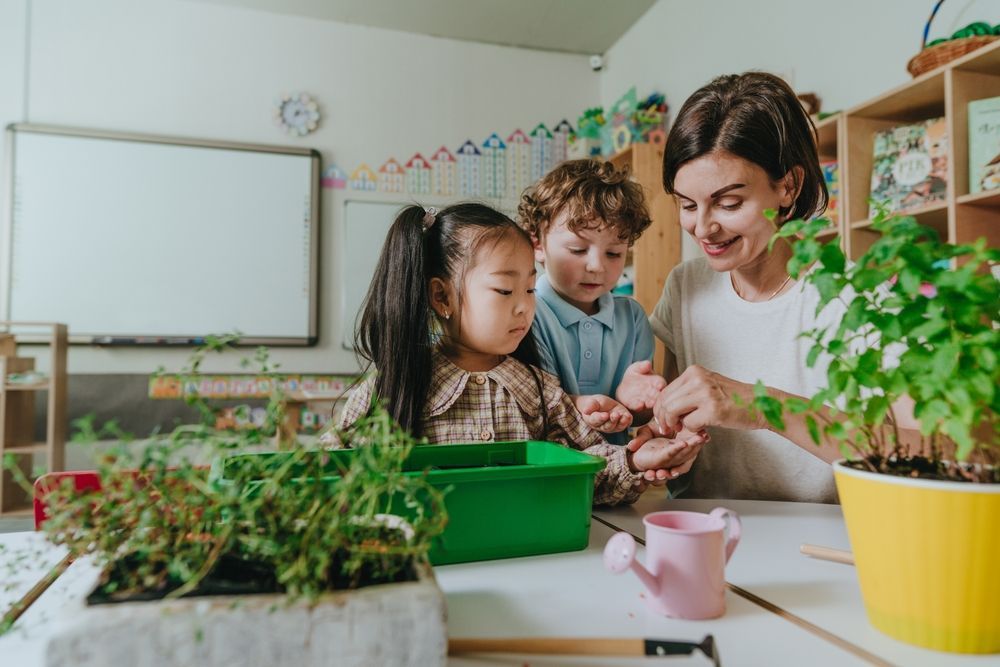
Fostering Hands-On Learning
From teaching one-to-one correspondence to engaging in a vast number of other learning styles, these educators allow children to learn in the most natural and effective way possible: through their hands. By guiding and supervising, educators help children take on topics of interest and explore what they find. Educators provide the tools and a wealth of resources to encourage student-specific learning. By providing opportunities like this, educators support a child's natural curiosity.
Acting as a Guide and Mentor
From enrollment through the completion of their studies, a child is not being taught but led throughout their early life with a Montessori educator by their side. A core component of the Montessori method is supporting autonomy and self-reliance, both of which are essential tools to every facet of life going forward. As a mentor, the child always has a resource to ask questions to and gain guidance. They are not left to simply figure it out but have the resources and motivation to make it possible.
The Impact of Montessori Teachers on Child Development
When you learn about the Montessori method of education, you will notice that the child is at the center of the process. Yet, teachers create and foster opportunities for the child to explore, learn, innovate, and think. They do this in numerous ways.
Teachers are tasked with:
- Creating an Intentional Classroom Design
- Providing and maintaining access to necessary materials for hands-on learning
- Building daily routines that teach child-specific skills
- Encouraging self-regulation of the child
- Providing the child with the freedom they need to explore what is most important to them
When you consider each of these areas, it is clear that these children are working with teachers who are passionate about their success. A child's development grows over time due to the resources available to them, the self-correction they learn, and the assessment strategies they develop. This method of education also supports socioeconomic skills, aiding in the development of every facet of a child's well-being.
This impact goes further. It allows for the development of academic skills and builds emotional intelligence. It offers a more holistic strategy for nurturing cognitive growth, physical development, creativity, and socio-emotional skills. Over time, children develop diverse skills that enable them to pursue a lifelong love of learning.
Choose Mansio Montessori for Exceptional Educators
The best way to understand the impact a Montessori teacher may have is to see the team working together. Set up some time to visit Mansio Montessori to experience what this type of teaching and support can offer to your child. Contact us today to learn more about how Montessori education offers a fresh perspective on how to educate a child.
